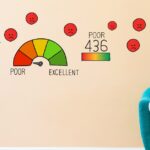Debt collection can be a stressful and overwhelming experience. The constant calls, letters, and pressure to pay off outstanding debts can take a toll on your mental and financial well-being. However, it’s essential to remember that there are ways to address and resolve debt collection issues. In this comprehensive guide, we will explore practical strategies and steps to help you get out of debt collection and regain control over your financial situation.
- Assess your debts: Begin by taking a thorough inventory of all your outstanding debts. Create a list that includes the creditor’s name, outstanding balance, interest rates, and any relevant terms or agreements. This assessment will provide you with a clear picture of the debt landscape you’re dealing with, helping you prioritize your efforts.
- Review your rights: Familiarize yourself with the laws and regulations related to debt collection in your country or region. Understanding your rights as a debtor can empower you to challenge unfair or illegal practices by debt collectors. The Fair Debt Collection Practices Act (FDCPA) in the United States, for example, provides guidelines and protections for consumers.
- Validate the debt: Debt validation is the process of verifying the legitimacy and accuracy of the debt. Send a written request to the collection agency or creditor, asking them to provide detailed information about the debt, such as the original agreement, account statements, and proof of ownership. If the debt cannot be validated, you may have grounds to dispute it or negotiate a lower settlement.
- Communicate with the collection agency: Maintain open lines of communication with the collection agency or creditor. It is essential to respond to their correspondence promptly and professionally. Be honest about your financial situation and explain any hardships you are facing. Request a payment plan or propose a reduced settlement amount that you can afford.
- Negotiate a settlement: If you’re unable to repay the full debt amount, consider negotiating a settlement with the collection agency. Start by offering a percentage of the outstanding balance as a lump-sum payment. Debt collectors often purchase debts for significantly less than the original amount, so they may be willing to accept a reduced payment to close the account.
- Seek professional assistance: If negotiating with debt collectors becomes challenging or overwhelming, consider seeking professional assistance. Credit counseling agencies or debt settlement companies can help you navigate the process, negotiate with creditors, and develop a personalized plan to manage your debts effectively. Research reputable organizations and ensure they have a track record of success.
- Consolidate or refinance: Consolidating your debts or refinancing them into a single loan can simplify your repayment process and potentially lower your interest rates. Explore options such as debt consolidation loans, balance transfers, or home equity loans. However, exercise caution and thoroughly understand the terms and potential risks before pursuing this option.
- Budgeting and financial planning: Develop a comprehensive budget and financial plan to regain control of your finances. Track your income, expenses, and prioritize debt repayment within your budget. Cut unnecessary expenses, increase your income through additional sources, and allocate as much as possible towards paying off your debts. Seek financial advice from experts if needed.
- Monitor your credit: Regularly monitor your credit reports to ensure accuracy and identify any errors or discrepancies related to the debts in collection. Correcting inaccuracies and updating your credit information can positively impact your credit score and improve your financial standing in the long run.
- Seek legal advice: If you believe your rights have been violated, or you’re facing complex legal issues related to debt collection, consult with an attorney specializing in consumer law. They can provide guidance, protect your rights, and help you navigate the legal complexities associated with debt collection.
Conclusion: While getting out of debt collection may seem challenging, it’s crucial to remember that there are strategies and options available to help you overcome this situation. By following the steps outlined in this comprehensive guide, you can take control of your debt and work towards a debt-free future.
Remember, it’s essential to assess your debts, understand your rights, and validate the debt before proceeding. Maintain open communication with collection agencies and explore negotiation and settlement options. If needed, seek professional assistance from credit counseling agencies or debt settlement companies to guide you through the process.









